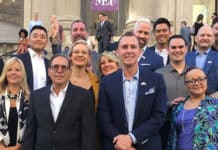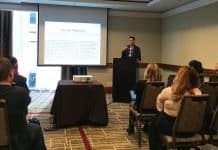 Thomas Roth, MBA, president, Community Marketing & Insights, has been helping industries understand the subtleties of the LGBT market since the company’s inception in 1992.
Thomas Roth, MBA, president, Community Marketing & Insights, has been helping industries understand the subtleties of the LGBT market since the company’s inception in 1992.
In the meeting and events industry, those subtleties can include everything from choosing LGBT-friendly destinations to having more diverse programming. In this shakedown, we ask Roth about his company’s experience working with the events industry and his advice for meeting planners who want to accommodate a more diverse audience.
What is your No. 1 piece of advice for meeting planners looking to plan events with the LGBT market in mind?
Know your event. The interests of the attendees should guide your selection of property and destination. Some may want a proximity to LGBT nightlife, which will narrow your search. Others may want to create more of an onsite LGBT atmosphere, allowing for more options.
What are some other key considerations that meeting planners need to think about when planning a meeting with the LGBT market in mind?
Be sure to book a hotel and destination that are known to be LGBT welcoming. There are many resources to help locate the best-matched hotel and destination. A few include TAG Approved (authentically LGBT-welcoming hotels), the Gay and Lesbian Convention & Visitors Bureau (destinations with dedicated LGBT outreach) and the International Gay & Lesbian Travel Association (a trade association for the LGBT tourism/hospitality industry).
Are there specific destinations that are more LGBT friendly than others that you recommend for a meeting?
Many! Several CVBs or DMOs have dedicated staff working to attract and serve LGBT meetings and events, including Las Vegas, Philadelphia, New Orleans, Cincinnati and Fort Lauderdale, Fla. But many more are very active. The Gay & Lesbian Convention & Visitors Bureau is really a good resource for meeting professionals to consider destinations.
What kind of diverse programming can meeting planners organize that would appeal to specifically the LGBT market?
The “LGBT market” is just as diverse and varied as the general market, depending on the topic of the meeting, the demographics of attendees, etc. Don’t make any assumptions. Ask the meeting leaders what their attendees’ interests are, and do some research on their past meetings and what attendees enjoyed most about them.










